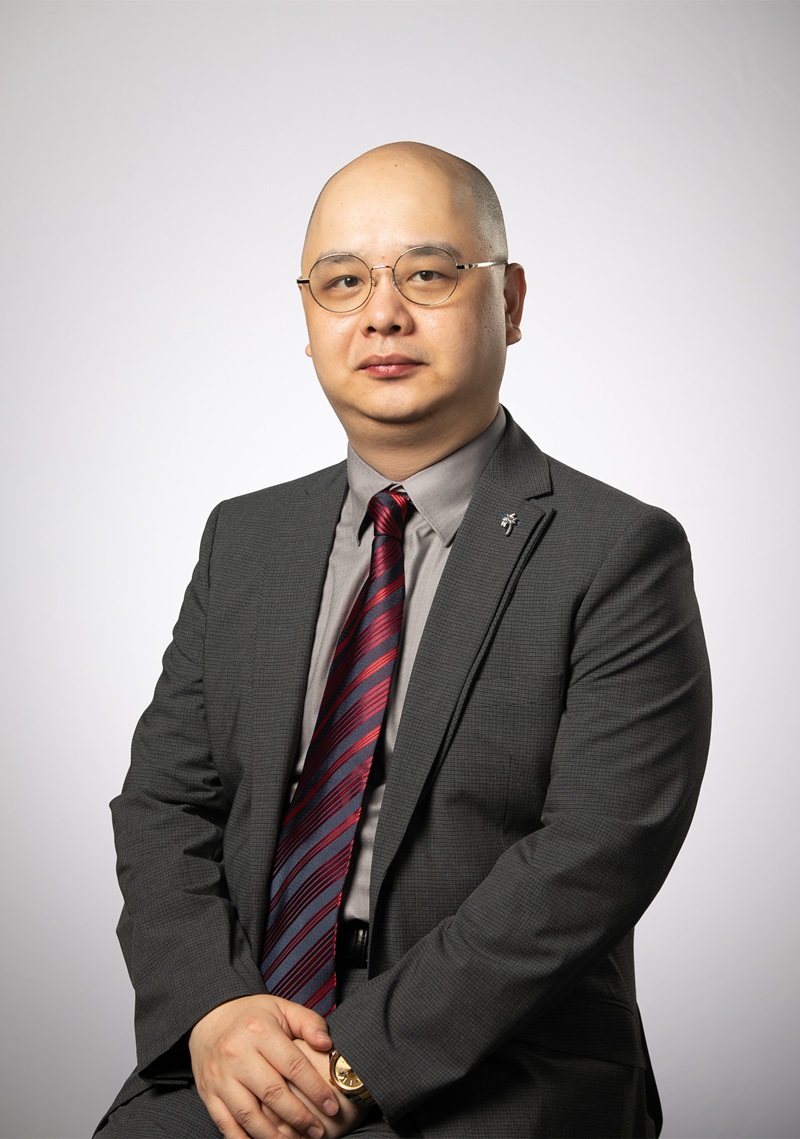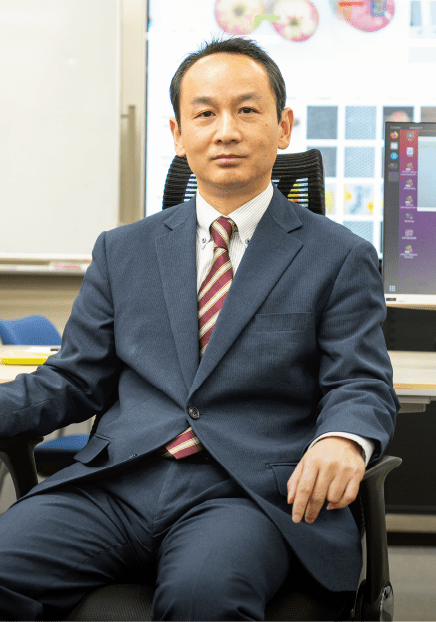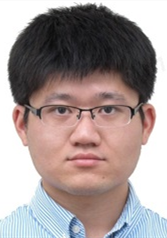Prof. Zou Di is an Associate Professor in the
Department of English and Communication and the Faculty
of Humanities at The Hong Kong Polytechnic University.
She holds a PhD in English from City University of Hong
Kong and a TESOL certificate from Trinity College
London. Her research expertise lies in educational
technology, language education, computer-assisted
language learning (CALL), game-based language learning,
and artificial intelligence (AI) in language education.
With a strong research focus on educational technology
in language education, Professor Zou has led and
collaborated on over 20 research projects. She has
published more than 220 research papers, primarily in
SSCI- and Scopus-indexed journals, including Computers &
Education, British Journal of Educational Technology,
Computer Assisted Language Learning, Language Learning &
Technology, and Systems. Her work has had a significant
impact in the field, with a Google Scholar citation
count of 11939 (as of July 2025), an h-index of 52, and
an i10-index of 107. She has been recognized as one of
the World's Top 2% Scientists by Stanford University for
four consecutive years (2021–2024). Several of her
papers in Computers & Education and Computer Assisted
Language Learning rank among the Most Cited Articles in
their respective journals.
Professor Zou's contributions to teaching and research
have earned her numerous awards. She has received the
Excellent Paper Award from the International Conference
on Blended Learning and the International Conference on
Open and Innovative Education. Her innovative teaching
projects have been recognized internationally, winning
the Gold Medal and Special Awards at the International
Invention Innovation Competition in Canada (iCAN) and
the Silver Medal at the International Innovation and
Invention Competition (IIIC) in Taiwan.
Beyond her research and teaching achievements, Professor
Zou plays an active role in academic publishing. She
serves as an Associate Editor for Computer & Education
(SSCI IF=8.9), Computers & Education: X Reality, and
previously for the Australasian Journal of Education
Technology (SSCI IF=4.1) (2021–2022). She is also an
editorial board member for Education Technology &
Society (SSCI IF=4.7) and the International Journal of
Mobile Learning and Organisation. Additionally, she has
led special issues for several prestigious journals,
including Computers in Human Behavior (SSCI IF=9.0),
Systems (SSCI IF=4.9), Education Technology & Society
(SSCI IF=4.7), and Computers & Education: Artificial
Intelligence (Scopus CiteScore=16.8).
Professor Zou’s extensive research, editorial
contributions, and dedication to technological
advancements in language education continue to shape the
field and inspire scholars worldwide.
Speakers
Prof. Di Zou
Associate Professor, Department of English and Communication
Associate Professor, Faculty of Humanities, The Hong Kong Polytechnic University, Hong Kong
Abstract: To be updated soon.

Prof. Haoran XIE
World's Top 2% Scientists in (1) Artificial Intelligence and (2) Education, Stanford University
Lingnan University, Hong Kong, China
Prof. XIE Haoran received a Ph.D. degree in Computer Science from City University of Hong Kong and an Ed.D degree in Digital Learning from the University of Bristol. He is currently a Professor and the Person-in-Charge of Division of Artificial Intelligence, Acting Associate Dean of the School of Data Science, and Director of LEO Dr David P. Chan Institute of Data Science, Lingnan University, Hong Kong. His research interests include natural language processing, computational linguistics, artificial intelligence in education, and educational technology. He has published 438 research publications, including 262 journal articles. His Google Scholar citation count is 22654, with an h-index of 61 and an i10-index of 206. He is the Editor-in-Chief of Natural Language Processing Journal, Computers & Education: Artificial Intelligence, and Computers & Education: X Reality, and the Co-Editor-in-Chief of Knowledge Management and E-Learning. He has been selected as the World's Top 2% Scientists by Stanford University.
Abstract: To be updated soon.

Prof. Lin Meng
College of Science and Engineering
head of the Intelligent High-performance Computing Lab, Ritsumeikan University, Japan
Lin Meng is a Professor at the College of Science and Engineering and head of the Intelligent High-performance Computing Lab., at Ritsumeikan University (RU), Japan. He received his Ph.D. from the Graduate School of Science and Engineering at RU 2012. He served as a Research Associate, Assistant Professor and lecturer at the Department of Electronic and Computer Engineering, RU from 2011 to 2018. In 2015, he was a visiting scholar in the Department of Computer Science and Engineering, University of Minnesota at Twin Cities, USA. His research interests include Computer Architecture, Parallel Processing, Intelligence High-Performance Computing (IHPC), FPGA-based Accelerator Design, the Internet of Things (IoT), and Artificial Intelligence (AI). He has published over 300 papers, including IEEE-TIM, IEEE-TASE, IEEE-TCE, IEEE-TSC, IEEE-TITS, IEEE-IoT J, IoT (Elsevier), ACM-JOCCH, AIRE, APIN, Information Fusion, Advanced Science, Neurocomputing, Heritage Science, etc. He also services several high-quality journals as an editor, such as IoT J, IJAMECHS, IJHMS, Biomimetics Intelligence and Robotics, Evolutionary Intelligence, etc. He is among the top 2% of scientists in the updated science-wide author databases of standardized citation indicators created by Elsevier in 2023, 2024, 2025. In the past five years, he received several funds from the Japan Society for the Promotion of Science (JSPS) and the Japan Science and Technology Agency (JST), etc. He is a senior member of IEEE and a member of ACM, IPSJ, IEICE, and IEE.
Abstract: Artificial Intelligence (AI) is widely utilized across numerous fields and holds significant potential for future advancements. It has become indispensable in addressing complex challenges and driving innovation across industries. In our efforts, we aim to develop high-performance image-processing AI that meets the demands of current applications and paves the way for future technological breakthroughs. Firstly, we introduce several proposed methods for compressing AI models tailored for resource-constrained edge devices. These methods ensure that AI can be efficiently deployed in environments with limited computational power and energy resources, such as IoT devices, autonomous systems, and real-time monitoring solutions. Subsequently, we demonstrate the interdisciplinary applications of AI across multiple domains in our group, including: (1) Digital preservation of cultural heritage through the integration of AI and information and communication technologies (ICT). (2) Automation in the food industry via the convergence of AI and robotics. (3) Cell profiling and biomedical analysis, combining AI with advanced bioengineering techniques. (4) Anomaly detection in industrial systems using AI-driven predictive methodologies. (5) AI-powered nano-drone applications for precision monitoring and environmental analysis. These topics illustrate the versatility and potential of our high-performance image processing AI.

Prof. Zhengxing Huang
Department College of Computer Science and Technology
Head, Department of Biomedical Engineering, Zhejiang University, China
Huang Zhengxing is currently a professor and Ph.D.
advisor at the Institute of Artificial Intelligence of
Zhejiang University. His research focuses on the
transformation of clinical decision-making paradigms—a
cutting-edge interdisciplinary field that spans clinical
medicine, information science, and data science. He
conducts research on knowledge and data-driven
intelligent clinical decision support methods, which
encompass the processes from data to knowledge and from
knowledge to decision-making.
Professor Huang has published or had accepted over 80
papers in prominent national and international academic
journals and conferences in the areas of data mining and
medical artificial intelligence, including JAMA Network
Open, EClinicalMedicine, and IEEE TBME. His research
work has been positively cited in numerous reviews,
commentaries, and annual reviews of research
associations, as well as authoritative journals such as
JACC and PNAS. He has an H-Index of 28.
Currently, he serves as an associate editor or editorial
board member for several key SCI-indexed journals in the
field of medical artificial intelligence, including
Artificial Intelligence in Medicine, npj Digital
Medicine (a Nature Partner Journal), Journal of
Biomedical Informatics, and BMC Medical Informatics and
Decision Making. He is also a board member and the
Deputy Secretary-General of the Healthcare and
Bioinformatics Special Committee of the Chinese
Information Processing Society, and serves on the
program committees of various international academic
conferences such as AIME and IEEE ICH.
Abstract: To be updated soon.
